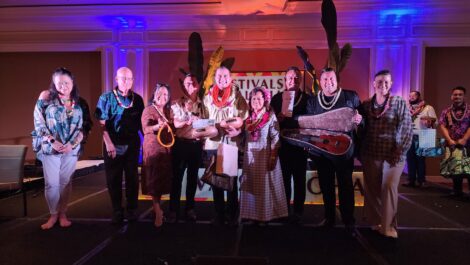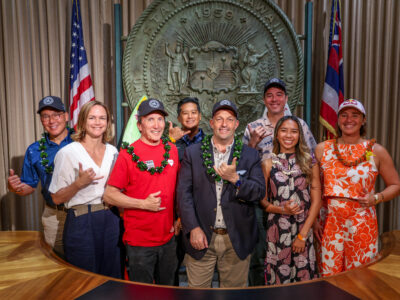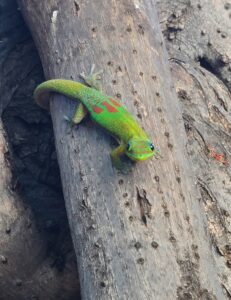Coco Love: Disrupting the status quo through innovation
Coco Love expands from Maui to Big Island
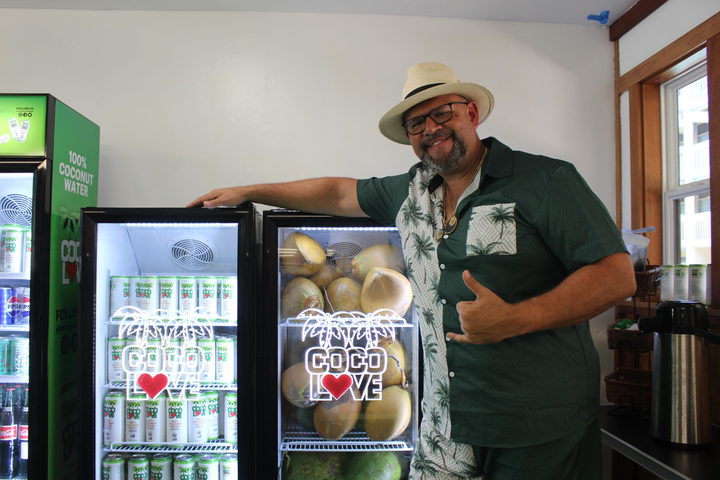
By Megan Mosley for The Maui News
A team of businessmen backed by Hawai’i real estate owners throughout the islands are hoping sales from their coconut water business will help them build and establish an industry here.
Originating from Las Vegas, Coco Love, mainly sourced by Vietnamese coconuts at the moment, started under the vision of Vinny “CocoVinny” Zaldivar, a former contestant on the popular television series ‘Shark Tank.’ He is known for inventing Coco Taps, which struggled to survive during the pandemic, he said.
As a result of the temporary decline of Coco Taps, Zaldivar said he pivoted his business model and focused on creating Roots for Change, a 1101(a), 501(c)(3) nonprofit based in Puerto Rico, and operates out of Costa Rica and now Hawai’i, with a goal to plant coconut trees and sell coconut water.
“My goal is to disrupt the status quo and innovate the coconut hydration industry by tapping into new markets and planting a million coconut trees in the USA by 2030,” Zaldivar said.
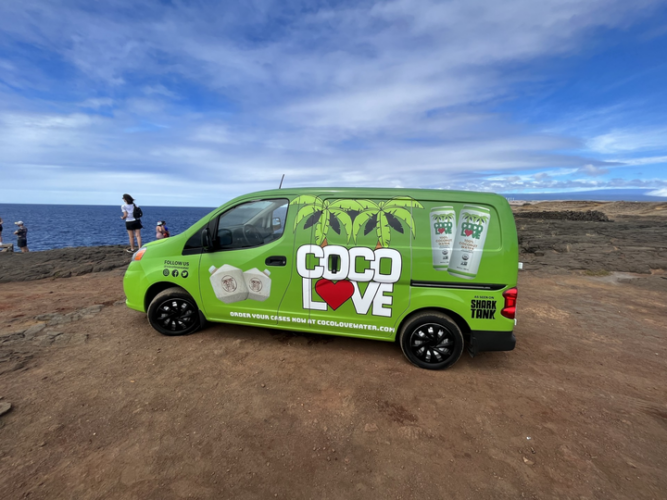
According to their website, they aim to build sustainable tropical food forests that support local farmers and help combat food insecurity in America.
The initiative has planted 32,000 coconut trees thus far.
Director of Hawaii Operations for Coco Love, “Coco” Jonny Michaelsen said currently the group has planted many trees in these areas, as well as here on Maui. The group also has their own storefront on the Valley Isle called Da Coco Shack Maui, which can be found along the Road to Hana.
But nowadays the entrepreneurs are spending most of their time on the neighboring Big Island, where they opened a storefront along Ali’i Drive next to Da Poke Shack at the Kona Bali Kai Resort called “The Coco Shack Hawaii.” Residents and visitors to Big Island may have also noticed their bright green fleet of Coco Love vehicles on the road.
Michaelsen said Coco Love currently purchases around 1,000 coconuts locally in Hawai’i, and they are going to need many, many more in order to meet demand.
Right now Michaelsen and Zaldivar said they are looking at buying land and hiring locally to plant and grow the coconuts needed to help sell Coco Love, and that they are “having conversations with” Parker Ranch to help partner in the project.
They also view their business as an opportunity to help grow a coconut industry here.
“Currently coffee is the number one agriculture product in Hawai’i, with about $40 million a year. The coconut industry would double that,” Michaelsen said.
Some might say the idea to help build food security and plant coconut trees in the islands is a great idea, but it’s already happening.
Reinvigorating Hawai’i’s long-standing relationship with coconuts is not a new concept, and currently there are many local coconut farmers and gatherers who sell from the farmer’s markets to the beaches. The niu, or coconut, continues to be a vital thread holding together the island’s social fabric.
Coconuts first found their way to Hawai’i around 4,500 years ago, when voyaging Polynesians and Indo-Malayans brought their favorite varieties to the Pacific.
Historians say early Polynesians used every part of the coconut, from the trunk, fonds, shells, husks, and leaves. Today in Hawai’i, you may see the remnants of these ancient groves, with some having been visabilly impacted or deteriorated over time.
One such grove includes Kalaeloa, a royal niu grove on Oahu, and it was featured in this Kumu Niu video
(https://www.youtube.com/watch?v=c_uT9l5Jbac). The video shares the story of NiU NOW!, a community cultural agroforestry movement led by University of Hawai’i’s Dr. Manulani Aluli Meyer and Indrajit Gunasekara.
While Coco Love has an economic-driven intention, the intention of Niu Now! aims to reaffirm the importance of niu, coconut and uluniu, coconut groves in the islands. Their goal is to support the re-establishment of a relationship with niu, and the ancient knowledge practices of Hawai’i’s coconut heritage as a “tree of life.” They do this by planting, through education, research, and outreach.
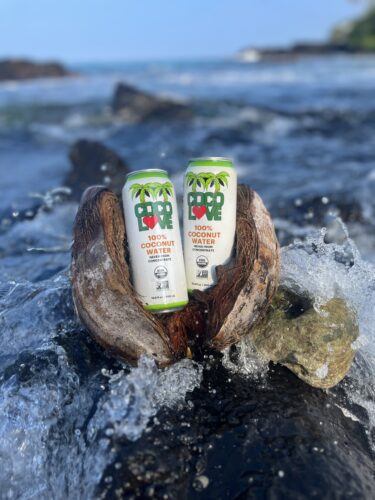
Growing coconuts takes time. A single coconut palm may yield 100 coconuts per year, but may take over a year to mature. But Zaldivar and Michaelsen said they are willing to wait, and hope to build alongside local efforts.
“Fruit and nut trees have the power to not only address a warming climate but to empower communities to build soil, preserve biodiversity and foster a cleaner, healthier ecosystem and economic environment for generations to come,” Zaldivar said.
Zaldivar said about 30 to 40 percent of Coco Love’s profits go toward their Roots for Change efforts.
For more information about Coco Love visit their website at www.cocolovewater.com, and to learn more about Roots for Change visit www.roots4change.org.

